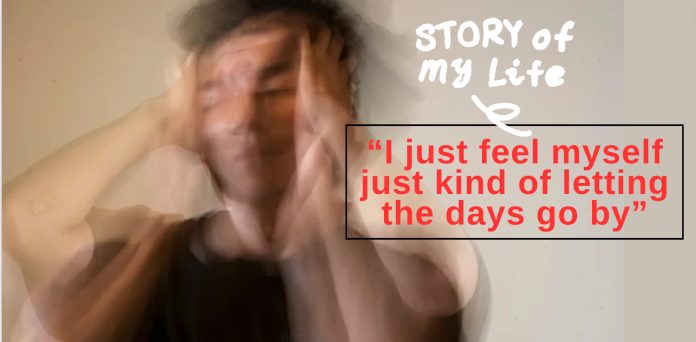Jacob Forrest, a 24-year-old working in Miami’s health insurance sector, should ideally be focused on saving money. But like many of his peers, Forrest finds himself in a cycle of spending, socializing, and spiraling, as he describes it. “I just feel myself just kind of letting the days go by,” he admits. “I know so many people who don’t have much saved, are bouncing from job to job, and a lot of us are still going out and partying, going downtown and stuff and just kind of acting like everything’s all right. And I just know that’s not the case.”
This sentiment isn’t unique to Forrest. Across social media and in personal conversations, there’s a growing acknowledgment that many young people feel stuck in a cycle of uncertainty. Jamal Jordan, an author and Washington Post editor, captured this feeling perfectly when he tweeted, “Am I the only one who feels like everyone is spiraling? All of my friends worked hard their whole lives just for layoffs to be a normal part of their professional lives, no one can afford to save money, everyone’s partying a lot, seemingly embracing an ethos of chaos.”
The Data Behind the Despair
This sense of despair isn’t just anecdotal; it’s backed by data. Unemployment is creeping up again, and inflation, though slowed, remains a significant concern. For Gen Z, many of whom are recent graduates or young adults starting their careers, the financial pressures are immense. Millennials, too, are still grappling with the economic fallout from the 2008 recession, now compounded by the pandemic.
So, how do you cope when everything feels like it’s falling apart? Mental health experts suggest that focusing on what you can control is key. “We are living through some unsettling times, and it can feel like everything is out of control, so what’s the point,” says Laura Petiford, a licensed marriage and family therapist. “Remembering that exercising control over our thoughts can be incredibly powerful in making challenging times more manageable.”
You’re Not Alone in This
For many, the feeling of spiraling is tied to an inability to manage negative thoughts. “And what we think can impact how we feel as well as behavior, sometimes starting a cycle that’s not healthy,” Petiford notes.
Samantha DeGennaro, a 36-year-old from Connecticut, knows this feeling all too well. After graduating from Harvard University in 2009, she faced a turbulent job market and chose to work in startups. Recently laid off, she attended her 15-year college reunion with trepidation. “You typically don’t want to go into a college reunion without a job,” she says. But at the reunion, she found that everyone was candid about their struggles. “It was actually really refreshing that I wasn’t alone,” she says. “There is sort of this false sense that everybody else is doing better than you.”
Adjusting to a New Normal
The pandemic continues to cast a long shadow over these generations, disrupting their educations, careers, and social lives. Resuming a semblance of normalcy hasn’t been easy. “We’re still getting back into it, like it’s still awkward sometimes,” says Alex Piscatelli, a social strategist and creator of the Grief and Media Project. Forrest echoes this, acknowledging that he knows what he needs to do—stop smoking, get off his phone, eat better, and work out—but admits it’s easier said than done. “Even though we know we should be making changes in order to improve our situation, whatever that situation may be, it’s sort of like a ‘eh, whatever. We’ll just roll with the punches.'”
Holding on to Hope
For some, however, rolling with the punches isn’t enough. Nadia Worsley, 35, has been laid off twice in the last three years, and it took her nine months to find a job. “My unemployment ran out, bills kept piling up, therefore, I didn’t have extra funds to contribute to my retirement like I had previously been doing,” says the Los Angeles publicity strategist. “I felt worthless and like I wasn’t good enough.”
Piscatelli tries to combat this despair by embracing cultural trends and staying connected with friends. “I ebb and flow between being hopeful and being in despair,” she says. “And I try not to stay in despair too often. I try to tell myself that things will work out.”
The uncertainty faced by Millennials and Gen Z is palpable, but recognizing that these feelings are shared can be the first step toward finding stability in a chaotic world.








